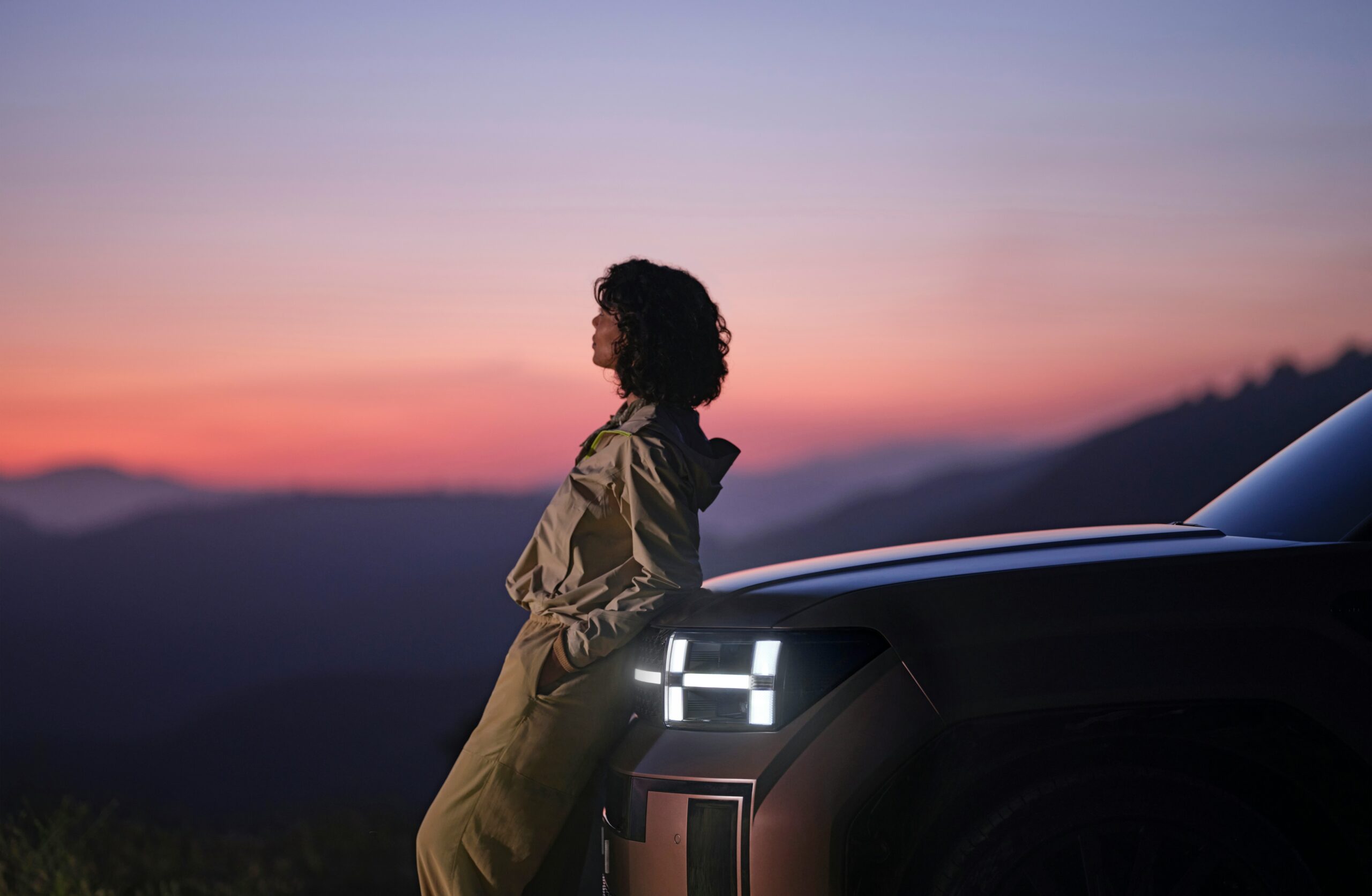
Chinese SUVs vs. Sedans: Which EV is Right for You in the UAE?
Evaluating Space and Comfort
When choosing between Chinese electric SUVs and sedans in the UAE, considerations of interior space and comfort are paramount. Each vehicle type offers distinct advantages tailored to varying needs and preferences, especially considering the long drives and daily commutes commonly experienced in the region.
Chinese electric SUVs are designed with ample space in mind, providing more generous seating capacity, legroom, and headroom compared to their sedan counterparts. This makes them an appealing option for larger families or individuals who prioritize additional passenger comfort on extended journeys. Typically, SUVs feature a higher seating position, which not only offers better visibility but also tends to be more comfortable for taller passengers. Furthermore, the trunk space in SUVs is considerably larger, supporting extensive storage needs, whether for shopping sprees, weekend getaways, or carrying sports equipment. The materials used in the interiors of Chinese electric SUVs often include high-quality fabrics and advanced soft-touch materials, contributing to an overall premium feel.
On the other hand, Chinese electric sedans might appeal more to those valuing streamlined design and agility. Although sedans offer less internal space compared to SUVs, they are generally more comfortable for daily urban commutes. The seating arrangement in sedans is usually lower and more reclined, which can be beneficial for those who prefer a more intimate and sporty driving experience. Despite the smaller trunk, sedans can still accommodate typical everyday luggage needs and some models offer foldable rear seats for added versatility. Additionally, the quality of materials in many Chinese electric sedans has significantly improved in recent years, incorporating plush, durable fabrics and contemporary designs that cater to modern tastes.
Customer reviews and expert opinions on both vehicle categories underline these distinctions. Families and individuals frequently traveling long distances in the UAE may find the spaciousness and comfort of Chinese electric SUVs more beneficial. Conversely, those prioritizing efficiency and a sleek driving experience may lean towards the refined interiors and comfort of Chinese electric sedans.
Performance and Driving Experience
When comparing the performance and driving experience of Chinese electric SUVs and sedans in the UAE, several critical metrics come into play, such as acceleration, handling, range, and battery efficiency. Chinese EV manufacturers have been making significant strides in these aspects, aiming to deliver not only eco-friendly vehicles but also those that provide a satisfying driving experience. In bustling city traffic in Dubai or on extensive highway trips between emirates, these vehicles must meet diverse performance demands.
Starting with acceleration, electric SUVs and sedans from brands like BYD and NIO are known for their impressive quickness due to the instant torque provided by electric motors. Sedans typically offer a more nimble and agile driving feel because of their lighter weight and aerodynamic design. On the other hand, SUVs provide robust power suitable for a range of terrains while maintaining a commendable acceleration rate, making them versatile for urban and off-road conditions.
Next, battery efficiency and range are crucial considerations. Chinese manufacturers frequently equip their EVs with advanced battery technologies, ensuring competitive ranges on a full charge. For instance, some sedans can surpass 500 kilometers, whereas SUVs might offer slightly lower ranges due to their larger size and weight. This makes sedans ideally suited for everyday urban commutes while SUVs are better for longer family trips. Ensuring sufficient charging points throughout the UAE, particularly near major highways and city centers, supports these long-range drives.
When it comes to handling, sedans generally exhibit superior maneuverability and stability at high speeds, making them excellent for navigating the busy streets of Dubai. SUVs, while slightly less agile, offer a higher driving position, granting better visibility which is beneficial for both city and highway driving. Moreover, modern Chinese EVs incorporate innovative driving aids such as adaptive cruise control, lane-keeping assist, and parking assistance systems, which significantly enhance the driving experience. These features are increasingly becoming standard, bridging the gap between comfort and convenience.
Expert commentary often highlights how the integration of these advanced technologies and efficient performance metrics translates to a highly satisfactory ownership experience. Feedback from UAE-based users has been positive, emphasizing the reliability and practicality of Chinese electric SUVs and sedans under local driving conditions. With such vehicles, drivers enjoy a blend of modern technology, efficient energy use, and an unexpectedly pleasant driving experience.
Cost Considerations: Price and Maintenance
When analyzing the financial aspects of choosing between Chinese electric SUVs and sedans in the UAE, it is crucial to consider both initial purchase prices and long-term costs. Generally, Chinese electric SUVs tend to come with a higher sticker price compared to their sedan counterparts due to their larger size and added features. However, many brands offer competitive financing options that make the financial burden more manageable. Some manufacturers even provide zero-interest loans or extended payment periods to attract buyers, ensuring that a wider audience can afford their vehicles.
Potential resale values also play an essential role in the decision-making process. Over time, Chinese electric SUVs have shown a relatively stable resale value owing to their growing popularity and enhanced features. Sedans, on the other hand, might depreciate faster as new models enter the market frequently, though a high demand for compact, efficient vehicles may buffer this depreciation to some extent.
Maintenance costs are another critical factor. Chinese electric vehicles generally benefit from lower maintenance costs compared to traditional internal combustion engine vehicles, thanks to having fewer moving parts and simpler mechanical systems. However, there can be significant variations between SUVs and sedans in this regard. Smaller sedans typically incur lower maintenance expenses, given their less complex structures and fewer component needs. In contrast, the larger SUVs might require more frequent servicing and have higher charges for parts replacement.
Warranty coverage is a key consideration, with many Chinese EV manufacturers offering extensive warranties to ease potential buyers’ peace of mind. These warranties often include comprehensive coverage for the battery, which can be the most expensive part to replace. Furthermore, the availability of service centers across the UAE plays a pivotal role, ensuring that any repairs or maintenance can be easily and promptly addressed. Although the network of service centers for Chinese EVs is expanding, it is advisable to verify the presence of authorized service points in your vicinity before making a purchase.
Insights from industry experts and existing owners emphasize the importance of considering all these financial elements collectively. They suggest a detailed assessment of initial costs, maintenance, warranty, and resale value to make an informed decision that aligns with one’s financial strategy and long-term ownership plans.
Matching Vehicles to Lifestyles and Needs
When selecting between Chinese SUVs and sedans for the UAE market, it is crucial to consider your specific lifestyle and needs. Diverse factors such as family size, commuting distance, and driving environments play pivotal roles in determining the right vehicle. For families with children, the ample space and versatility of an SUV can be a significant advantage. A vehicle like the Geely Atlas Pro offers substantial cargo room and seating capacity, making it ideal for school runs, weekend outings, and family vacations.
Conversely, for single professionals or couples, a sedan might be more fitting due to its compact nature and fuel efficiency. Vehicles such as the BYD Han EV are designed for urban commuting, offering excellent maneuverability and easy parking solutions in busy city environments. The smooth handling and stylish appearance of a sedan can make daily commutes more enjoyable and less stressful, while also providing better fuel economy than larger SUVs.
If your routine includes frequent long-distance travel or you often traverse varied terrains, an SUV’s higher ground clearance and robust build could be indispensable. The Byton M-Byte, for instance, combines luxury with durability, ensuring comfort and safety during long drives across the UAE’s diverse landscapes. These SUVs offer advanced features like all-wheel drive and enhanced suspension systems, ensuring a smooth experience whether you’re driving through desert roads or mountainous areas.
Urban commuters who primarily navigate city traffic might find sedans more appealing due to their efficiency and ease of navigation. As cities like Dubai and Abu Dhabi are known for their dense traffic conditions, the quick acceleration and smaller footprint of a sedan can make a noticeable difference in driving convenience and efficiency.
Real-world testimonials further validate these recommendations. One Dubai-based family praises their Changan CS75 for its space and utility, which easily accommodates their two children and weekend gear. On the other hand, a young professional in Abu Dhabi appreciates the nimbleness and fuel-efficiency of his JAC A5, which effortlessly meets his daily commuting needs.
Ultimately, whether you choose a Chinese SUV or sedan should align with your lifestyle and driving demands. Prioritizing elements like space, efficiency, and road handling will ensure that you make a well-informed decision, catering seamlessly to your daily activities and long-term plans.
Add a comment Cancel reply
Categories
- Auto Detailing (1)
- Automobile Reviews (2)
- Automobiles (1)
- Automotive (10)
- Automotive Industry (3)
- Automotive Reviews (2)
- Automotive Trends (2)
- Car News (10)
- Car Reviews (3)
- Cars in UAE (12)
- Classic Cars (1)
- Electric Vehicles (4)
- Green Technology (2)
- UAE-CARS (60)







